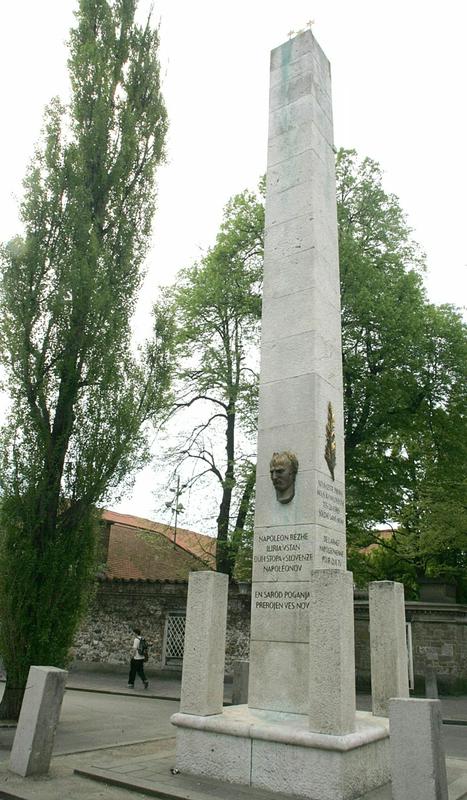
Tourists visiting Ljubljana are often taken to a one-of-a-kind square. The Square of the French Revolution includes a monument to Napoleon – one of very few such memorials on a continent where the name of the usually-reviled French emperor has long been banished from city streets, squares, and parks. In Slovenia, however, Napoleon is remembered not as a conqueror, but as a reformer whose legacy can still be felt today.
In 1809, after defeating the Hapsburg Empire in battle, Napoleon created the Illyrian Provinces as an external territory of his expanding French Empire. The Provinces extended from East Tyrol through modern-day Slovenia and Croatia Dalmatian Coast all the way to the Gulf of Kotor in what is now Montenegro. And Ljubljana was selected the capital of this vast territory.
Unfortunately for Napoleon, the Illyrian Provinces were short-lived. Austria regained its military might, and with the help of the British and the Montenegrins, it took back the Illyrian Provinces. Napoleon’s territory on the eastern Adriatic was abolished.
The Provinces’ legacy, however, turned out to be long-lasting. The progressive Napoleonic Legal Code was adopted by the courts of the land, and republican values replaced those dating back to Feudalism: noble titles were abolished, equality before the law as guaranteed to all, the Church was separated from the State, and citizens were granted economic freedom.
But some of the most the significant changes affected the status of the Slovenian nation. Under Napoleon, the Slovenian language, which had never had any official status under Austrian rule, was recognized as official and thereby given parity to French and German. Slovenian-language schooling was drastically expanded, and the newly formed Ecole Centrale in Ljubljana sowed the seed of Slovenian higher education.
Even though Napoleon’s rule was seen as anti-national in other European countries, it helped to awaken a new national consciousness in Slovenia. In the decades after French rule, Slovenian intellectuals looked back to the period of the Illyrian Provinces as an inspiration when demanding more rights for the Slovenian nation in the Hapsburg Empire. French rule had given them a sense of national emancipation, and the memory remained vivid as Slovenians embarked on their struggle against political domination from Vienna.
Today, one of the few monuments devoted to Napoleon recalls an era that set the Slovenian people on a long journey towards equality and national recognition.

































































